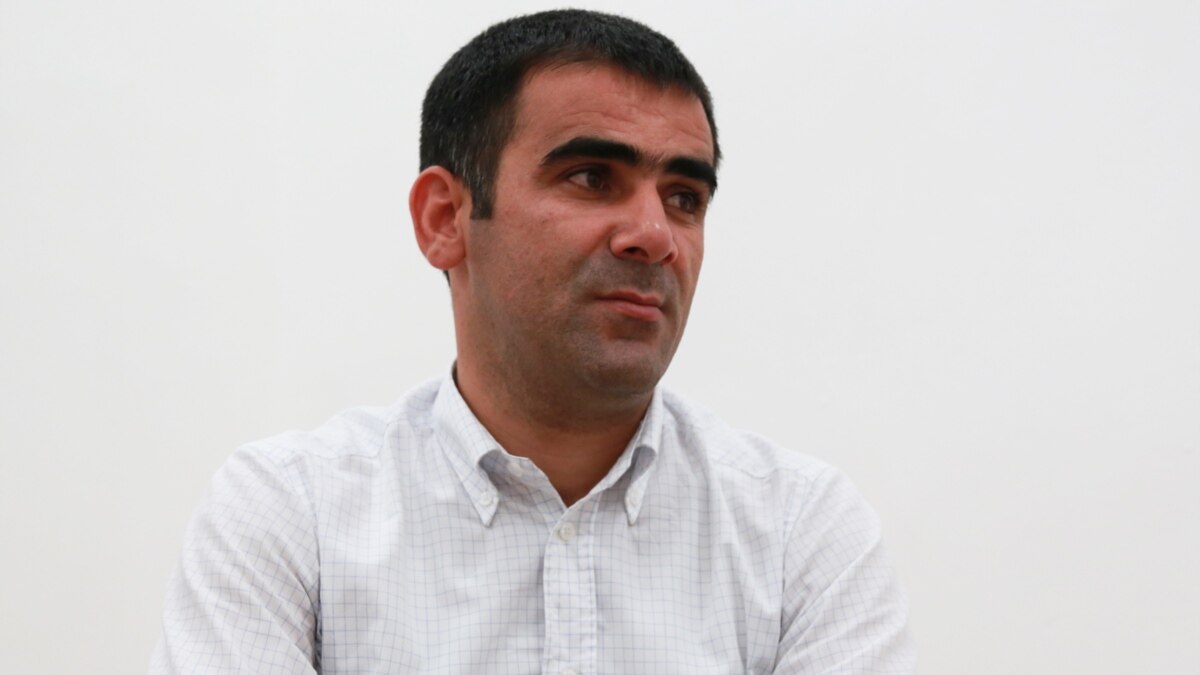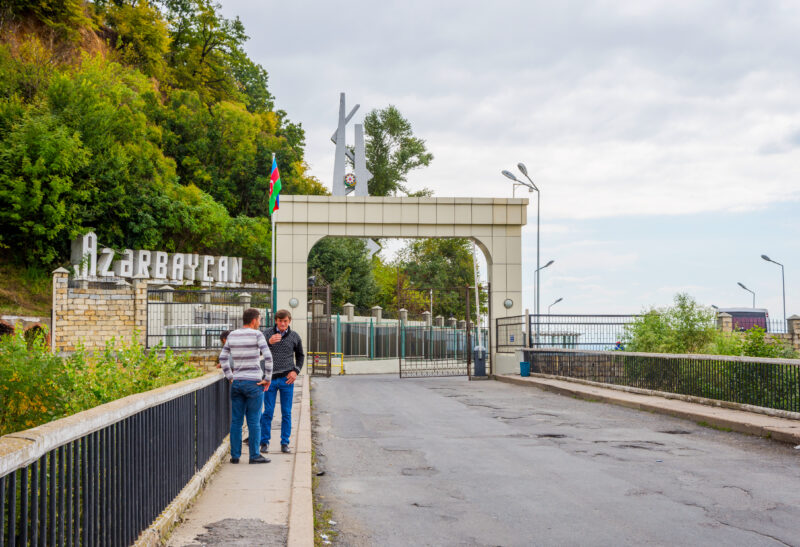This article was originally published on 15 January 2022 in Azerbaijani and Russian. On 8 February, Ilham Aliyev signed the bill in question into law.
The Media Law restricts not only journalists, but the entire information society.
For Azerbaijani media, 2022 began with concerns about whether or not the President would sign the Law on Media, which was hastily adopted by the Milli Majlis in the closing days of last year.
In fact, the process surrounding the bill, from the first day up until its approval after its the third reading, leaves no doubt that the President will soon sign it and the law will enter into force. Experts are of the same opinion.
But what will change in for information in Azerbaijan when the law “On Media” comes into force? Why are independent journalists so worried? What will be the impact of this law on their activities? We tried to answer these questions together with experts.
Should there be a definition of a “journalist”?
Independent journalists’ concerns about the law begin with the definition of “journalist” in the draft. Paragraph 4 of Part 1, Article 1 of the law states:
“A journalist is a person who works under a civil law contract in a media entity or as an individual under an employment contract, and is a person who carries out this activity for profit.”

For example, if you do not earn any money, you are no longer a journalist. Moreover, in today’s world, where such a wide range of media outlets exist, such a rigid framework for the notion of a “journalist” is not possible. Mehman Aliyev, director of the Turan news agency, also agrees, stating:
“This is not true. The concept of journalism is very broad. For example, I am a graduate journalist. Another considers himself a journalist, writes, publishes, produces videos, and so on. That is, the meaning is quite broad. The law does not describe the concept of a journalist in general, the definition only serves to limit it.”
Requirements to be accepted into the registry
One of the most worrying issues is the “registry issue” mentioned in the law. Article 73 of the law states:
“In order to systematize information on media entities, including their editorial offices, as well as journalists, a Media Registry will be established in the Republic of Azerbaijan.
The Media Registry is an electronic information resource managed by the body (institution) determined by the relevant executive authority and its maintenance is carried out at the expense of the state budget of the Republic of Azerbaijan.”
Article 74 sets out the requirements for the inclusion of journalists and media entities in the registry. The requirements are described in more than twenty paragraphs. According to these requirements, in order to be included in the media registry, a journalist must have higher education, no criminal record, have at least three years of experience in journalism, and the media he or she works for must be registered in the media registry.
At a time when information initiatives are so widespread and everyone can be a producer of information, it seems absurd, to put it mildly, to register journalists in the Media Law, as well as to require them to pursue higher education. If we take into account that in the distant ’90s, when independent journalism was just being established in Azerbaijan, journalists were not required to have a higher education, and among today’s well-known journalists there are those who have no higher education.
The requirement of three years of work experience is nothing but a restriction. Personally, I started working in professional journalism when I was a sophomore in university. I participated in state events together with experienced journalists without being excluded and I was able to get statements from government officials. I do not think that I have damaged journalism. On the contrary, being close to any information helped me grow faster to become an experienced journalist. It turns out that the state, which imposes such a restriction on the Law on Media, is afraid of the professionalization of young journalists.
The demand for no criminal convictions is especially ironic in the current reality of the Azerbaijani media. Dozens of Azerbaijani journalists have been arrested for investigative journalism and critical articles against the government, and they have been convicted of serious crimes on trumped-up charges. It turns out that none of them will be considered journalists anymore.
As for the requirement for a journalist to work at a registered media entity, I know from personal experience that as a former representative of a media organization that has not been officially registered with the Ministry of Justice for more than a decade under various pretexts, the Media Agency will register those media it wants to and will not register those it doesn’t want to as it pleases.
Is the registry statistical in nature?
However, Natig Mammadli, head of the Media Agency and one of the authors of the bill, insists that the media registry is purely statistical in nature and does not impose any restrictions on the activities of journalists.
When talking about the requirements for being accepted into the registry, Mammadli said that although these requirements are an obstacle for registration, they do not prohibit journalists’ activities. He does not consider it a problem that journalists will be deprived of the opportunity to receive information from government officials and participate in government events because they cannot be registered in the registry.

“There is no such statistical base. If it is a statistic, why are there at least fifteen conditions for inclusion in the registry? If the goal was to determine statistics, an electronic system could be set up to allow journalists to enter their names without any other prerequisites. On the other hand, effective tools for measuring statistics already exist. The Ministry of Justice already maintains a registry of newspapers. Journalism is among the types of tax activities, all the information is already available to the tax authorities. The registry, which will be created in this form according the law, is a very serious threat to free media, journalism, and intends to control journalists and force them to self-censor. Of course, we are talking about free journalists, and media independent of the government”, said Khalid Agaliyev, a lawyer and media rights expert.
Mehman Aliyev also says that the registration of journalists and media entities is not just for statistics:
“They will register the media they want to, they will not register they don’t want to register. For example, it is said that enrollment is voluntary. I tell them that, “c’mon, you haven’t written this in the law|; they say, “but it’s what we meant.” The law must be written very clearly, it must clearly state what it is about. You should not sit down and comment on every article of the law, that’s not how laws work. The lack of clarity gives them ample opportunity to describe and apply them as they wish tomorrow.”
What specific problems will independent journalists face after the law comes into force?
According to Khalid Agaliyev, after the law comes into force, the first approximate problems may be related to the main work of journalists – the collection, preparation and dissemination of information.
“After the creation of the registry, there will be problems in attending meetings of official bodies, as well as other gatherings of public importance, and receiving answers to requests for information. Journalists will be required to prove they are journalists. Then, a press card directly from a media will no longer be accepted, all that will matter is whether or not they are on the registry.”
The media rights expert believes that the very important privileges enjoyed by journalists who are not included in the registry will be called into question.
“For example, obstructing a journalist’s professional activity creates criminal liability, and failure to respond to a journalist’s inquiry creates administrative liability. Also, only journalists have the right to keep their sources secret. Those whose names are not included in the registry may be deprived of these means of protection. At the same time, the law contains many provisions that restrict editorial freedom and the content created by journalists. The law stipulates that journalists will a duty to disseminate information in the certain amounts and types of content.
Aghaliyev also noted that the public is now aware of protests, especially through independent media, journalists, as well as online media. If citizens protesting against the government hold a rally tomorrow, we will no longer see the news about those events.
“Those who report such on information are media outlets with no offices, limited activities, and freelance journalists,” he said. The new law will further reduce their opportunities. When they try to obtain information, they will be turned away or detained. Such an environment will also have a deterrent effect on others”, said the lawyer.
There were already existing obstacles, so why the new law?
The fact is, the situation of media in Azerbaijan has been deteriorating year by year since 2005. Access to the websites of Radio Liberty, Meydan TV, Azadlig Gazeti and other media outlets has been blocked in the country. Due to the monopoly of the advertising market, independent and critical media outlets were deprived of the opportunity to maintain offices, and sharply reduced the number of employees, including their salaries. Independent journalists are not invited to government events, and government agencies often leave their inquiries unanswered. The situation of independent journalism is already deplorable, given the arrests, intimidation, threats and other means of persecution. What was the need for a new law in this case?
Mehman Aliyev believes that the need for the law arose from the expansion of the information society.
“We are not approaching the issue correctly. The law is not about mass media, but about media. The concept of media covers the whole society, and mass media is an integral part of it. Therefore, this law is intended for the entire information society. That is, anyone who initiates information, disseminates information on Facebook, Youtube, Twitter, etc., is subject to this law. The main issue is to take control of social networks.”
Mehman Aliyev believes that the introduction of the concept of platform in the law is connected with this. Article 32 of the law states that the platform operator operates on the basis of a license.
I told them that there is no definition of a “platform” in any law on mass media, on television and radio. You are applying it for the first time, why don’t you make it make sense? They did not want to explain the concept and did not give it in spite of my protests. However, Ali Huseynli, who took part in the discussion, also agreed that the term should be explained because it is being used for the first time. Because they say that they mean TV channels when they say “platform”, but in the international lexicon, a platform is not television channels, but resources directly related to the Internet – websites, Facebook, Youtube, Twitter pages, Whatsapp, and so on. Then they write that platforms are licensed. Tomorrow they will apply it, they will say you are a platform, you have to get a license.”
If we take into account that the vast majority of media outlets, especially televisions, are controlled by the government and broadcast only one-sided information, the law will completely restrict the activities of the remaining independent journalists, including all information entrepreneurs, thus violating citizens’ right to alternative information. In other words, citizens will be locked in a big “AzTV vacuum”.
Is this the end?
Mehman Aliyev said that the process hasn’t been transparent since the when the law was drafted.
“Society has been deceived at the state level. The Media Agency reported that discussions were taking place in newsrooms. When we met in June, we said give us the bill, we’ll discussed it in our editorial office, and they said that there was no bill. If there was no bill, what were they discussing in the newsrooms? Then, on 10 December, they suddenly took it out in the parliament, again brought out the media they financed, and created a formal image, as if there was a discussion. Because we protested, they pretended to talk to us, but again they deceived us. About 70 proposals for changes were put forward, there could have been more, none of them were adopted, and the law was passed by parliament in the same way as it was written. This shows that the government’s intention is to stifle and restrict freedom of speech in Azerbaijan.
Independent journalists protested by all means against the adoption of the bill by parliament. But to no avail. The law was passed. Most likely, it will be signed by the President in a few days. Will this law prevent information initiatives in the country? I do not think so. No matter how authoritarian the government, it is impossible to prevent the flow of information in the age of modern technology. The struggle of independent journalists for freedom of speech is likely to continue in court. I do not think that the complaint “obstruction of journalistic activity” will result in a fair decision in the local courts. This means that the European Court of Human Rights will increase the number of cases entitled “So-and-so or so-and-so versus Azerbaijan.”



